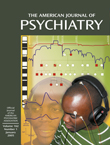Abstract
OBJECTIVE: The purpose of this study was to determine whether adjunctive use of a psychostimulant (mixed amphetamine salts) was safe and efficacious for treatment of symptoms of attention deficit hyperactivity disorder (ADHD) in pediatric outpatients with bipolar I or bipolar II disorder and concurrent ADHD whose manic symptoms had been stabilized through treatment with divalproex sodium. METHOD: An 8-week open-label trial of divalproex sodium to control manic symptoms and to discern the effect of divalproex sodium on ADHD was followed by a 4-week randomized, double-blind, placebo-controlled crossover trial to determine if mixed amphetamine salts was safe and effective for treatment of ADHD symptoms. Patients in the crossover trial continued to receive divalproex sodium. Diagnoses, made by clinical interview, were confirmed with the Washington University in St. Louis Kiddie Schedule for Affective Disorders and Schizophrenia. The Young Mania Rating Scale (for manic symptoms) and the Clinical Global Impression of improvement (for ADHD symptoms) were the primary outcome measures. RESULTS: Forty subjects ages 6–17 years with bipolar I disorder (77.5%) or bipolar II disorder (22.5%) and a Young Mania Rating Scale score ≥14 entered open treatment with divalproex sodium. With divalproex sodium, 32 subjects achieved ≥50% reduction in Young Mania Rating Scale baseline scores, but only three participants had significant improvement in ADHD symptoms. For the 30 subjects who entered the placebo-controlled crossover trial, mixed amphetamine salts was significantly more effective than placebo for ADHD symptoms. No significant side effects or worsening of manic symptoms was observed. CONCLUSIONS: Pediatric patients with bipolar disorder and concurrent ADHD can be safely and effectively treated with mixed amphetamine salts after their manic symptoms are stabilized with divalproex sodium. Divalproex sodium alone (8-week trial) is not an effective treatment for ADHD in the context of bipolar disorder.



